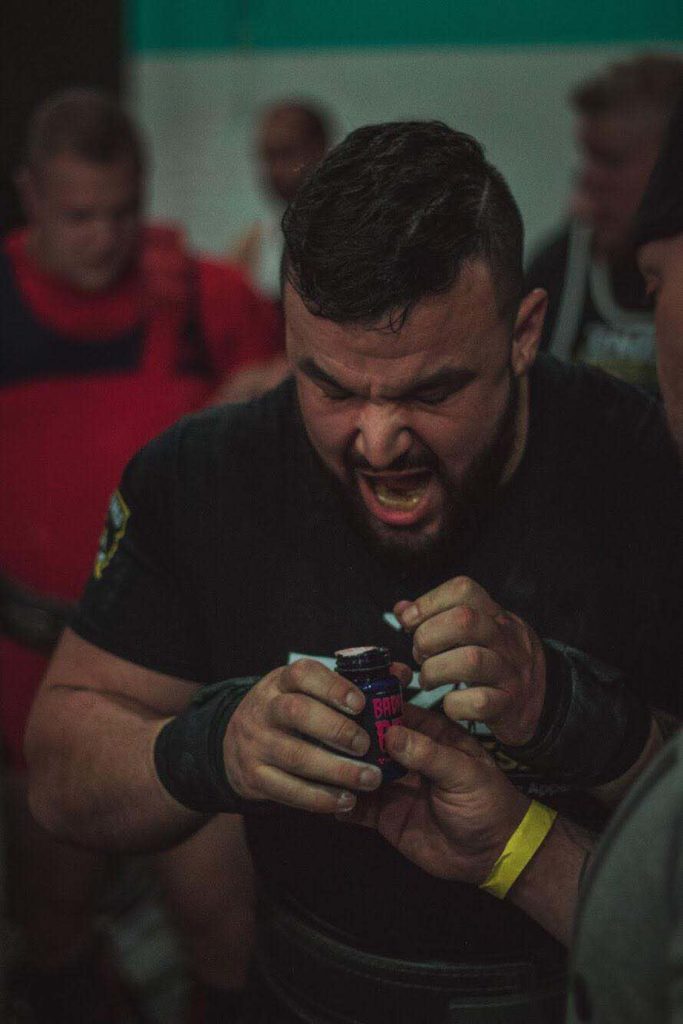
27 Aug Are You a Mental Midget?
By Paul Oneid
Brian has spoken a lot recently about being a “Cerebral Athlete” as part of the 10/20/Life principle of “Being an athlete 24/7.” This concept is depicted perfectly in both the 10/20/Life 2nd Edition and Gift of Injury. Essentially, being a cerebral athlete entails mastering your mind and reframing your thought processes regarding every aspect of training and life. Questioning, analyzing, evaluating, and making appropriate decisions at the appropriate times all play their role. The fact is – some of the most cerebral athletes are sometimes the ones most susceptible to crumbling under pressure and dealing poorly with adversity. These people are who I like to call “Mental Midgets.”
The act of lifting a barbell is a very complicated process of kinesthetic inputs, interpretations, and execution. Once you add in the environmental contributions of competition and the elements outside of your control, there is a lot of sensory input to be processed and evaluated. Add in further the amount of planning, preparation, and sacrifice that goes into the competitive endeavor, and it can be overwhelming at times. Often, the difference between those who thrive and those who fail is not any physical skill or capacity; it is what goes on between the ears. If the mind is not well trained to deal with these things, the body will not perform as well as it is capable. If you unlock the mind, you can unlock a new level of performance that you never envisioned yourself capable of.
“Free your mind, Neo” – Morpheus

In the world of mental health, the gold standard for anxiety and depression treatment is called Cognitive Behavioural Therapy, or CBT. CBT is a strategic process by which a practitioner will assist a patient to reshape their thought process surrounding their condition and the triggers that affect them. This is an intensive and active therapy involving homework, exposures and a copious amount of practice. The patient must buy in entirely and participate actively for the treatment to work. When the patients do so, they are all but guaranteed success. Now, there are always more severe and complex cases, but there is a reason why CBT is the gold standard.
What does this have to do with lifting heavy weights? The answer is EVERYTHING! Everyone gets nervous, anxious, or has triggers that impact their ability to process the pertinent information during a competition, or even a heavy session for that matter. Every person will be different. Some people can’t stop questioning whether their goals are too grand. For others, it may be whether the equipment is of good quality, or if the warm-ups are running too fast. Whatever it is, if you haven’t trained your mind to deal with these triggers and put yourself back in the proper mindset, you will not be able to execute your game plan. Your thought pattern will spiral and become intrusive into your thoughts about performing the lifts. You need to quiet your mind and get into the state of mind where you can perform optimally. You need to get to “that place.”

The most common form of mental training is visualization. Visualization is part of the Cognition element of CBT, about our thoughts and beliefs. There is a lot of research on the benefits of visualization on performance. Deep diaphragmatic breathing practices often accompany visualization. Everything from the feel of the barbell in your hands, to the smell of the ammonia, needs to be pictured in your mind as accurately as possible. The cues you use are repeated ad nauseum as you mentally go through every detail of your SUCCESSFUL performance. It is imperative that no negative thoughts regarding the execution of the performance enter your thought process. Once you get to the competition, you will have already successfully performed the lift thousands of times. Our thoughts impact our belief in the successful performance.
Another common form of mental training is based on the principle of awareness. The behavioral element of CBT explains the effects of our actions. This tactic is best used by those who are proficient, experienced and are pursuing very high levels of achievement. High-level achievement, especially at the world class level, requires almost convincing yourself that it is possible. This starts at the beginning of the training cycle. The athlete will look at the goals they have set and establish benchmarks required to reach them. As the athlete progresses through, they review each step and validate that they are ready to move towards the next benchmark. This puts the performance into perspective and brings forth the notion of, “I have completed ABC, which has prepared me to execute XYZ successfully.” The goal is no longer on top of a pedestal; it is merely the next step in a meaningful progression.
Visualization and awareness tap into just 2 of the five elements of CBT. Whichever mental training component you use, you must keep in mind that it must be active, engaged, and practiced repetitively. Just like the body, you must train the mind to unlock its potential. In Gift of Injury, Brian and Stu speak of the protective mechanisms of the body. We must prepare and teach the brain to turn those protective mechanisms off to unleash ultimate performance. Likewise, we must train the mind to dial in all the pertinent information and quiet the noise. Those who can mentally go to “that place” often have the most success. Those who can’t? Those are the “mental midgets” that will never achieve anything significant and who will continue to make excuses for all their shortcomings.
To read more of Paul’s work and to follow his training, visit his author page HERE. Learn more about being a cerebral athlete and purchase the Gift of Injury and 10/20/Life 2nd Edition bundle, ON SALE NOW.
Paul Oneid
Latest posts by Paul Oneid (see all)
- A Proposition for a Paradigm of Planning Your Personal Periodization - March 4, 2019
- Paul Oneid –> Off-Season | Feet Up Bench PR and Some Squats - March 1, 2019
- Paul Oneid –> Off-Season | A bit of everything - February 21, 2019





Sorry, the comment form is closed at this time.